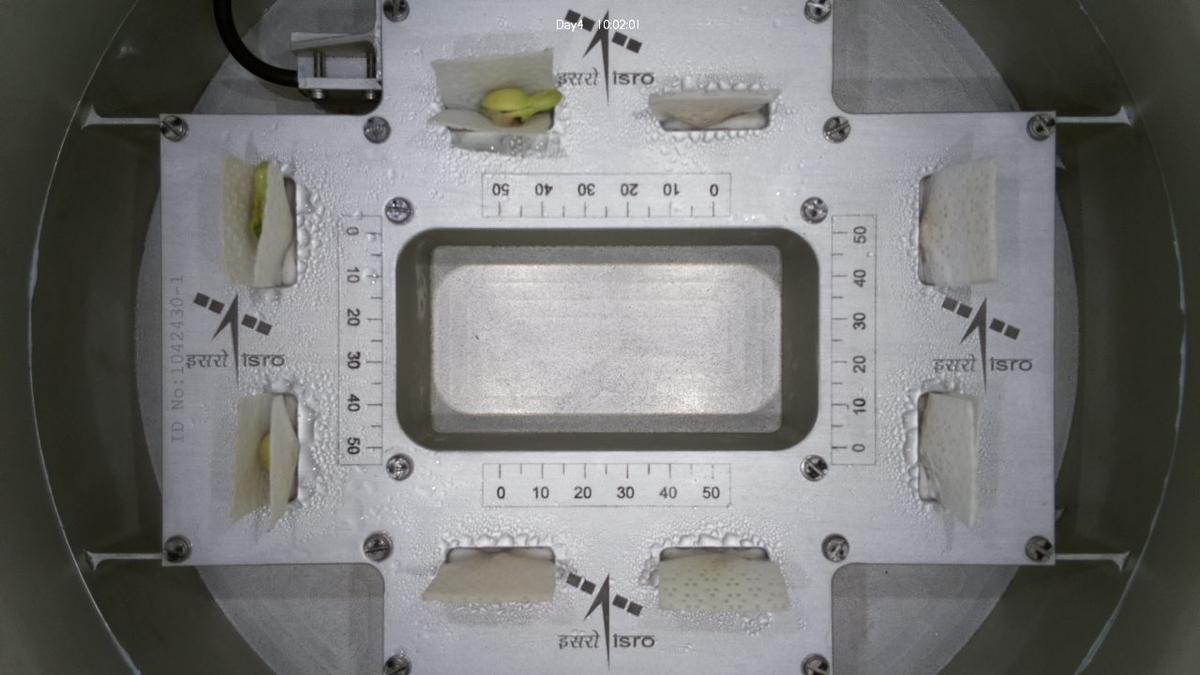
‘Life sprouts in space’, says ISRO after cowpea seeds germinate under microgravity conditions
The Hindu
ISRO successfully germinates cowpea seeds in space, part of CROPS experiment for plant growth in microgravity conditions.
Indian Space Research Organisation (ISRO) on Saturday (January 4, 2025) said the cowpea seeds it had sent to space onboard the PSLV-C60 POEM-4 platform have germinated under microgravity conditions within four days of the launch of the mission.
The space agency sent eight cowpea seeds as part of the Compact Research Module for Orbital Plant Studies (CROPS) experiment conducted by the Vikram Sarabhai Space Centre (VSSC) to study plant growth in microgravity conditions.
“Life sprouts in space! VSSC’s CROPS experiment onboard PSLV-C60 POEM-4 successfully sprouted cowpea seeds in 4 days. Leaves expected soon,” ISRO said in a post on X.
The PSLV-C60 mission placed two SpaDeX satellites in orbit on the night of December 30. The fourth stage of the rocket carrying the POEM-4 platform has been orbiting the earth with 24 onboard experiments at an altitude of 350 km since Tuesday (December 31, 2024).
The CROPS experiment aims to understand how plants grow in the unique conditions of space, which is essential for future long-duration space missions.
The experiment involves growing eight cowpea seeds in a controlled environment with active thermal regulation, simulating conditions that plants might encounter during extended space travel.
CROPS is envisioned as a multi-phase platform to develop and evolve ISRO’s capabilities for growing and sustaining flora in extraterrestrial environments.

Project Tiger needs no introduction. Among the most successful wildlife conservation programmes, its achievements are not only celebrated in India, but also globally. Not without its fair share of challenges and criticism, the project has definitely boosted the tiger population in the country. On this World Nature Conservation Day, A.S.Ganesh delineates the objectives and implementation strategies of this project, while also highlighting key figures that serve as a spotlight on the success…





















 Run 3 Space | Play Space Running Game
Run 3 Space | Play Space Running Game Traffic Jam 3D | Online Racing Game
Traffic Jam 3D | Online Racing Game Duck Hunt | Play Old Classic Game
Duck Hunt | Play Old Classic Game










